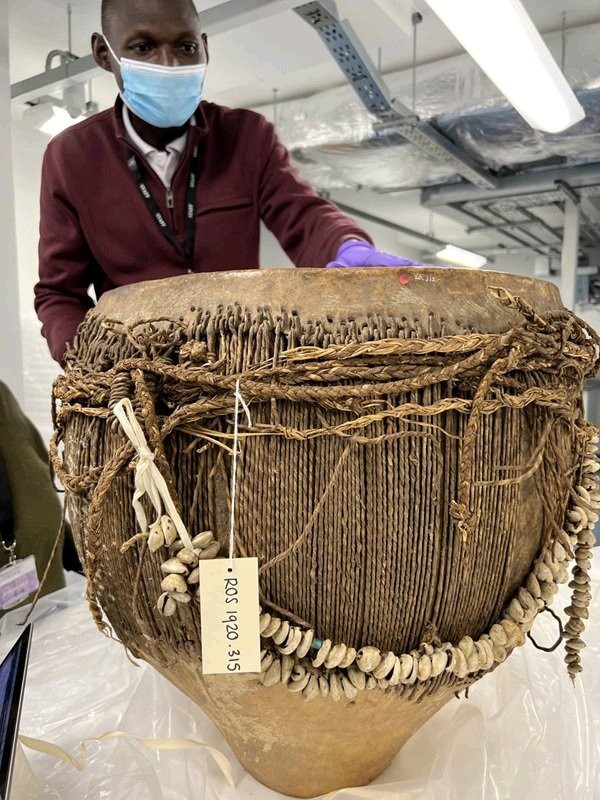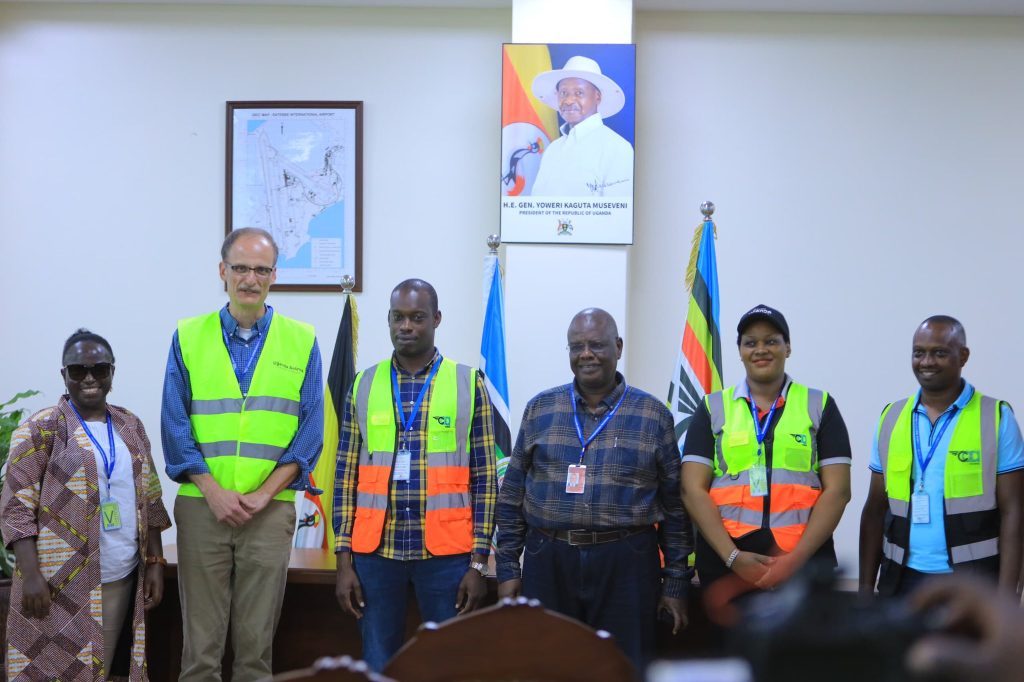In a historic moment for Uganda, 39 cultural heritage artifacts that have been housed in the Museum of Archaeology and Anthropology at Cambridge University for over a century were returned to the country on Sunday.
These artifacts, collected from various regions of Uganda, hold immense historical and cultural significance. Among the returned items is a drum from Bunyoro, which was sent to Cambridge in 1920.
The collection of artifacts was originally acquired by British colonial administrators, anthropologists, missionaries, and soldiers from the 1890s onwards. One prominent figure in this process was John Roscoe, a missionary anthropologist with close ties to Cambridge. His work contributed significantly to the accumulation of these culturally significant items in British museums.
Professor Derek Peterson from the University of Michigan, who has been instrumental in coordinating the return of these items, emphasized their importance.
He noted that among the returned objects is a collection of balongo, or sacred twins, which had significant ritual purposes in Buganda. Plans are underway to return these sacred items to the tombs from which they were taken, working in collaboration with the Buganda kingdom.

Peterson highlighted that the return of these artifacts is a step towards rectifying historical wrongs. He remarked, “They ended up in Cambridge because all the ways of life, all the religions, had been devalued. Collectors like John Roscoe could go around and acquire extraordinarily important items and take them off to Cambridge where they became part of the museum’s collections. Returning them is a way of honoring a past that Ugandans have lost but need to remember, bringing people’s lives back into focus, and recovering.”
The repatriation of these artifacts, a process supported by the Andrew Mellon Foundation, which covered research and transportation costs amounting to up to USD 100,000, is part of a broader movement to reclaim cultural heritage from colonial powers.
Martin Mugarra, Uganda’s State Minister for Tourism, Wildlife, and Antiquities, stated that the government is actively working to reclaim all artifacts taken from Ugandan communities by the colonial administration between the mid-1800s and 1900s.
This return marks the second instance of Uganda reclaiming its cultural heritage from Cambridge University. The first occurred in July 1962 during Uganda’s independence celebrations, when the Kibuuka Omubaale regalia were repatriated. The Kibuuka exhibit remains one of the centerpiece attractions at the Uganda Museum.
The artifacts recently returned include five human remains of the Balongo (Sacred Twins) vessel, which were acquired from Buganda in 1907 and will be returned to the Wamala tombs. Other significant items include a headdress made of human hair from Lango, acquired in 1937, and beautifully decorated pots from Ankole, acquired in the 1920s.

Jackline Nyiracyiza, the Commissioner for Museums and Monuments, highlighted the significance of these returns. She noted that the process, which began in 2019, faced delays due to the COVID-19 pandemic. She also mentioned that Cambridge University still holds many other Ugandan artifacts, both archaeological and ethnographic.
Upon receiving the artifacts, the Ministry of Tourism, Wildlife, and Antiquities plans to first assess their condition at the Uganda Museum. Following this, an exhibition will be organized for Ugandan and foreign visitors to view and celebrate the return of these historical objects from Europe.
While five objects will be returned to Buganda, the rest will be housed at the Uganda Museum, the primary repository for Ugandan artifacts. Over time, these items will be returned to their original communities once it is deemed that they can be properly cared for.
This significant return is not just about reclaiming physical objects but also about restoring a sense of identity and history that was disrupted by colonialism. The artifacts will help Uganda tell a more authentic cultural history, moving away from narratives shaped by colonial perspectives.
Do you have a story in your community or an opinion to share with us: Email us at thestandard256@gmail.com
Or WhatsApp Us on +256750474440
